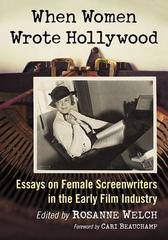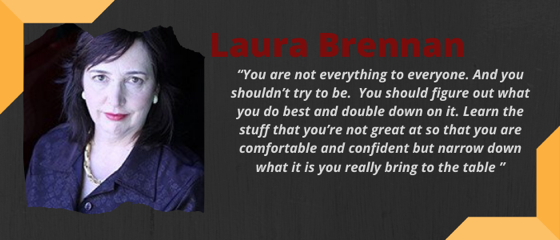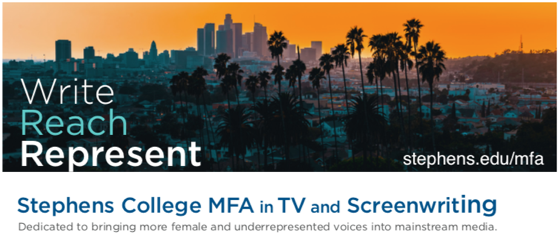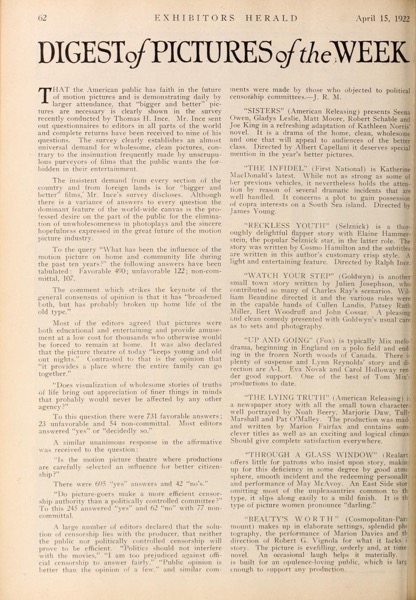Watch this entire presentation
Subscribe to Rosanne’s Channel and receive notice of each new video!
Transcript:
This is an anecdotal piece of history. Robert Riskin is a famous American screenwriter. He won an Oscar for It Happened One Night, which is the first movie to win all Oscars in all five of the major categories and there is a story in town — he often worked with the director named Frank Capra, also a gentleman of Italian heritage who I’m not very fond of these days — because in my research I’ve discovered that often he took credit from writers because he wanted it to be a Capra Production. He wanted to be the auteur of all things. So this story, which as I said is anecdotal, is that at one point Robert Riskin was tired of hearing that the Capra Touch made movies beautiful. So one day when he had a deadline on a script, he handed in 200 blank pages of paper and he said “Go ahead. Put your touch on that!” because you cannot direct if there is no material to direct. Alright. So we don’t know if that really happened but it’s a reminder that we have to think about the work of writers.
A Note About This Presentation
A clip from my keynote speech at the 10th Screenwriters´(hi)Stories Seminar for the interdisciplinary Graduation Program in “Education, Art, and History of Culture”, in Mackenzie Presbyterian University, at São Paulo, SP, Brazil, focused on the topic “Why Researching Screenwriters (has Always) Mattered.” I was especially pleased with the passion these young scholars have toward screenwriting and it’s importance in transmitting culture across the man-made borders of our world.
To understand the world we have to understand its stories and to understand the world’s stories we must understand the world’s storytellers. A century ago and longer those people would have been the novelists of any particular country but since the invention of film, the storytellers who reach the most people with their ideas and their lessons have been the screenwriters. My teaching philosophy is that: Words matter, Writers matter, and Women writers matte, r so women writers are my focus because they have been the far less researched and yet they are over half the population. We cannot tell the stories of the people until we know what stories the mothers have passed down to their children. Those are the stories that last. Now is the time to research screenwriters of all cultures and the stories they tell because people are finally recognizing the work of writers and appreciating how their favorite stories took shape on the page long before they were cast, or filmed, or edited. But also because streaming services make the stories of many cultures now available to a much wider world than ever before.
Many thanks to Glaucia Davino for the invitation.
* A portion of each sale from Amazon.com directly supports our blogs
** Many of these books may be available from your local library. Check it out!
† Available from the LA Public Library
![16 Robert Riskin from Why Researching Screenwriters (has Always) Mattered [Video] (1 minute)](https://rosannewelch.com/wp-content/uploads/2020/06/rmw-sao-paolo-16.jpeg)


![17 Margaret Atwood from When Women Write Horror with Dr. Rosanne Welch [Video] (58 seconds)](https://rosannewelch.com/wp-content/uploads/2020/06/rmw-cpp-horror-17.jpeg)
![15 More On Charlie Brackett from Why Researching Screenwriters (has Always) Mattered [Video] (57 seconds)](https://rosannewelch.com/wp-content/uploads/2020/06/rmw-sao-paolo-15.jpeg)
![Listen to the latest “How I Wrote That” Podcast with Screenwriter Laura Brennan from Most Likely to Die, and Faux Baby. [Audio]](https://rosannewelch.com/wp-content/uploads/2019/08/hiwt-stephens-logo-1-1.png)


![2020 Jan Marino Scholarship to Stephens MFA in TV and Screenwriting Announced at SeriesFest [Video]](https://rosannewelch.com/wp-content/uploads/2020/06/seriesfest-jan-marino.jpeg)




![16 More On Toni Morrison and Beloved from When Women Write Horror with Dr. Rosanne Welch [Video] (31 seconds)](https://rosannewelch.com/wp-content/uploads/2020/06/rmw-cpp-horror-16.jpeg)
![14 Charlie Brackett from Why Researching Screenwriters (has Always) Mattered [Video] (54 seconds)](https://rosannewelch.com/wp-content/uploads/2020/06/rmw-sao-paolo-14.jpeg)
